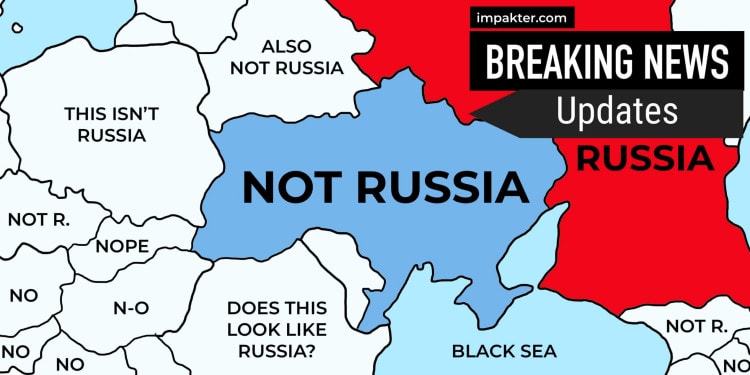I apologize to all my readers: For four months now I have stopped reposting my articles here and I’ve been swept up in work, following news of the Russian invasion of Ukraine – what future historians will no doubt call the Ukraine War.

To be honest, the war was no surprise, I saw it coming for several months now – as no doubt did the Pentagon and all the world’s military experts: the long build-up of Russian forces around Ukraine – fully 150,000 troops – could only mean Putin intended the invasion; in fact, he’s been very clear about it: He wants nothing else but the eradication of the state of Ukraine! Leaving forty-four million people with no choice but war.
I had written several articles about the coming war, you can find them here along with other articles I wrote over the last four months. My latest is an article on the impact of the war on Ukraine and Russian wheat exports, written in collaboration with Richard Seifman, an American diplomat and former World Bank senior health adviser; he wrote for us numerous articles about the Covid pandemic – we are both on the One Health Initiative Advisory Board.
And now I’m closely watching the news and updating the following article every day and whenever something important happens. Check it out regularly for the latest updates, here it is, for today March 8:
**LIVE UPDATES** Ukraine-Russia War: The News as it Develops
Impakter kept a close watch on the war as it broke the first 2 days and continues here with a DAILY UPDATE
 by Impakter Editorial Board
by Impakter Editorial Board
in Politics & Foreign Affairs, Society

Share on FacebookShare on Twitter
BREAKING NEWS ALERT As Russia launched a blitzkrieg against Ukraine on Feb. 24 and the situation fast turned into a full-blown war – the “Ukraine War” as future historians will no doubt call it – Impakter highlighted the most important breaking news from major sources (Reuters, AP, and others) over the first 2 days and will continue to update every morning here.
UPDATED March 8, 2022 – Bullet point summary of major developments in the war TODAY as of 9 am CET:
War becomes more violent, bomb damages are substantial, 400 civilian lives lost (UNHCR source). Russia started the war on Ukraine on 3 fronts, north (from Belarus), east and south (from Crimea) on Feb 24 READ MORE about how the war on Ukraine started with Putin’s declaration on Monday, Feb. 21…
Today:
- Russian offensive “slows” say Ukraine authorities; Kyiv still expecting imminent attack and Mariupol continues under siege and resisting; conditions in Mariupol increasingly dire, with no food, water, heating or electricity. Attempts to evacuate people have failed for the 4th day in a row as Russians did not respect their own cease-fire; attack on Odessa awaited;
- Russia’s promises of humanitarian corridors met with skepticism; recent Russian offer of corridors rejected by Ukraine as they led directly to Russia and Belarus;
- IAEA reports second nuclear plant damaged by Russian invasion (near Kharkiv)
- Refugees: Over 2 million Ukrainians have fled, including 1 million children, 4 million total expected by tomorrow; over one million in Poland (Un sources) READ MORE about refugees and the response of the EU and UK…Scandal developing around UK frosty reception to Ukrainian refugees, in stark contrast with rest of Europe: 250 thrown back yesterday; of over 5,500 online visa applications, only 50 accepted UK Guardian
- The third round of peace talks held yesterday led to no results
- In other news: Russia warns it could turn off gas pipeline to Germany; oil prices rise as US considers Russian oil import ban but no decision taken yet as Germany continues to object to a ban; Canada imposes new sanctions and EU getting ready to do same
Go to Impakter for the rest of the article and the latest news, click here.
Hope to see you often on Impakter – check it out every day for updates and new articles, click here.












